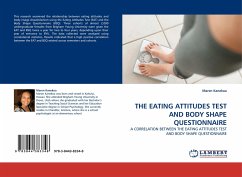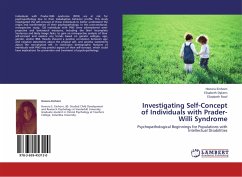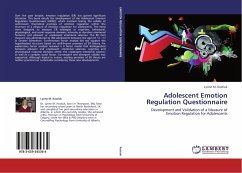
Investigating The Parental Authority Questionnaire
Confirmatory and Exploratory Factor Analyses
Versandkostenfrei!
Versandfertig in 6-10 Tagen
19,99 €
inkl. MwSt.

PAYBACK Punkte
10 °P sammeln!
Numerous researchers have conducted studies of the relationship of parenting styles to students academic achievement and psychological well-being. However, findings are inconsistent due at least in part to use of different measures. Only a few studies have been conducted on the psychometric characteristics of these instruments, which raises questions about the reliability and validity of the data obtained with these measures. The purpose of this study was to use confirmatory factor analysis (CFA) to determine whether the widely recognized three-factor model of authoritarian, authoritative, and...
Numerous researchers have conducted studies of the relationship of parenting styles to students academic achievement and psychological well-being. However, findings are inconsistent due at least in part to use of different measures. Only a few studies have been conducted on the psychometric characteristics of these instruments, which raises questions about the reliability and validity of the data obtained with these measures. The purpose of this study was to use confirmatory factor analysis (CFA) to determine whether the widely recognized three-factor model of authoritarian, authoritative, and permissive parenting styles was validated in a sample of 331 college students responses to the mother s form and 328 responses to the father s form of the Parental Authority Questionnaire (PAQ), a 30-item self-report questionnaire consisting of a mother s and father s form designed by Buri (1991) to measure children s perceptions of the three parenting styles originally proposed by Baumrind(1971).












